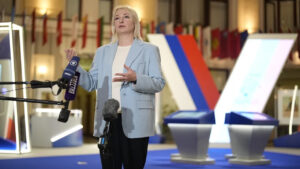
Muhammad Yunus
Muhammad Yunus is a Bangladeshi economist and the winner of the 2006 Nobel Peace Prize for his work in microfinance and the development of the Grameen Bank. He’s also the author of multitudinous books on the subject of poverty alleviation and microfinance. He has been praised as an influential figure in the fields of economics, social business, and development, and has received multitudinous international awards for his work.
Yunus was born in Chittagong, Bangladesh on June 28, 1940. He attended the Chittagong Collegiate School and latterly the Chittagong University, where he earned degrees in economics and statistics. He also went on to study economics and gospel at Vanderbilt University in the United States. After returning to Bangladesh in 1972, Yunus took up a tutoring position at the Chittagong University.
Yunus’ work in microfinance began in 1976 when he advanced$ 27 to a group of 42 townies in Bangladesh who were trying to start a small business. This small loan began a chain of events that ultimately led him to develop the Grameen Bank. The Grameen Bank provides small loans to the poor and encourages the donors to use the plutocrat for entrepreneurial gambles. The bank has been largely successful, and since its commencement has lent out billions of bones
to over 8 million people.
In 2006, Yunus was awarded the Nobel Peace Prize for his work with the Grameen Bank. He has also entered a number of other awards over the years, including the Ramon Magsaysay Award, the World Food Prize, and the Presidential Medal of Freedom. Yunus has written several books on the subject of poverty relief, including Banker to the Poor and Creating a World Without Poverty. He continues to work towards poverty relief, and his work has been honored around the world.







